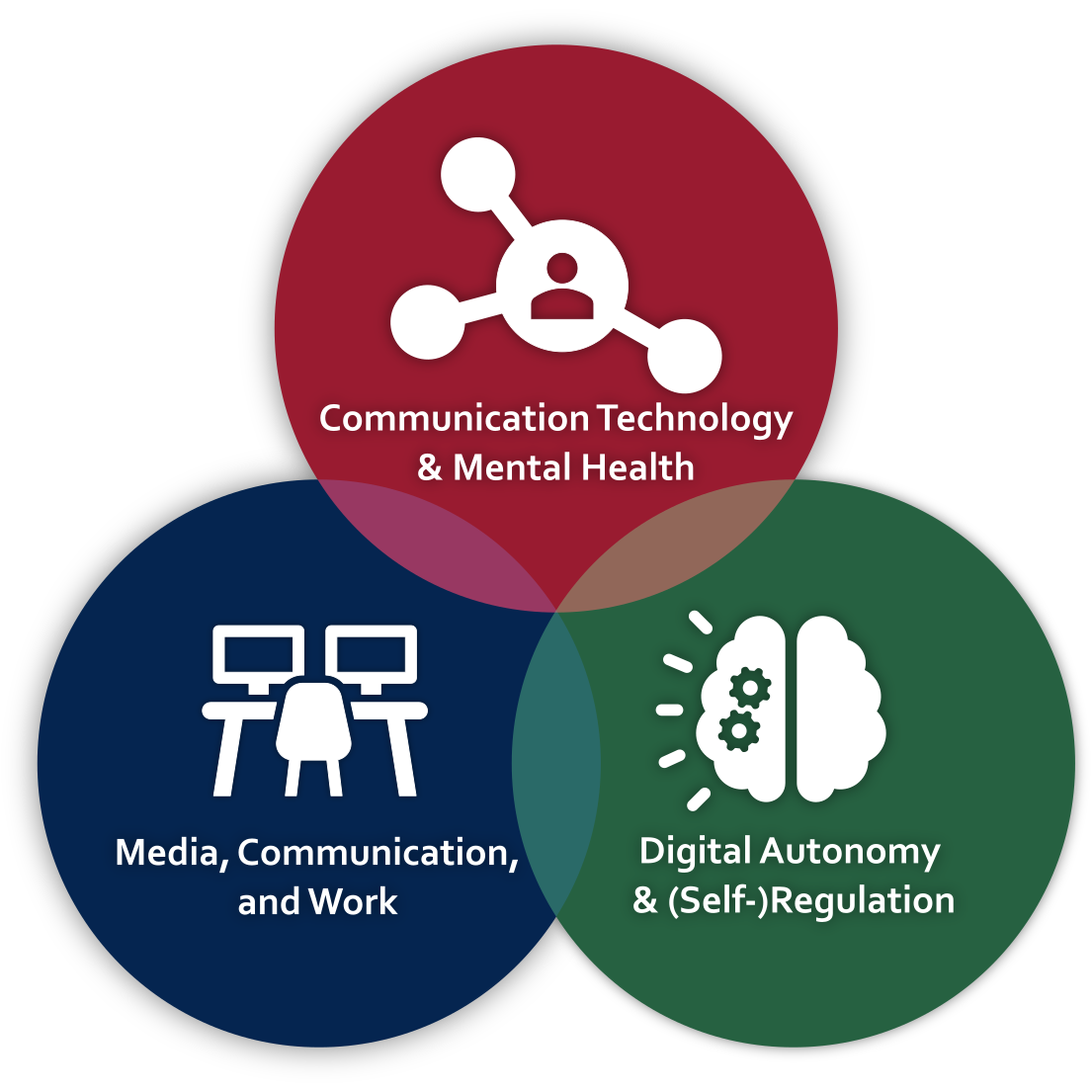Home
The Assistant Professorship for Communication Science is part of the Institute of Labor Market and Socioeconomics at the School of Business, Economics and Society of the FAU. The professorship investigates the positive and negative consequences of digital communication (e.g., via smartphones and social media) for users’ well-being, health, and self-regulation. Current research focusses on users’ digital well-being at the interface of work and leisure, for instance, digital stress, availability pressures, procrastinatory media use, and digital communication when working from home.
The professorship works theory-driven, with a focus on media psychological and quantitative empirical approaches. Methodological foci are short-term longitudinal designs (diary & experience sampling studies), systematic literature reviews (scoping review, overviews, meta-analyses), and fostering open science practices (e.g., preregistration).
Since March 2024, the Assistant Professorship also serves as Deputy Chair for Communication Science at FAU.
Recent publications
You can find three of the most recent publications below (more publications are listed here):
- Meier, A., Beyens, I., Siebers, T., Pouwels, J.L., & Valkenburg, P.M. (2023). Habitual social media and smartphone use are linked to task delay for some, but not all, adolescents. Journal of Computer-Mediated Communication, 28(3). https://dx.doi.org/10.1093/jcmc/zmad008
- Halfmann, A., Meier, A., & Reinecke, L. (2023). Trapped between goal conflict and availability norm? How users' mobile messaging behavior during task engagement influences negative self-conscious emotions. Journal of Media Psychology. https://dx.doi.org/10.1027/1864-1105/a000381
- Janicke-Bowles, S.H., Buckley, T.M., Rey, R., Wozniak, T., Meier, A., & Lomanowska, A. (2023). Digital flourishing: Conceptualizing and assessing positive perceptions of mediated social interactions. Journal of Happiness Studies. https://dx.doi.org/10.1007/s10902-023-00619-5


